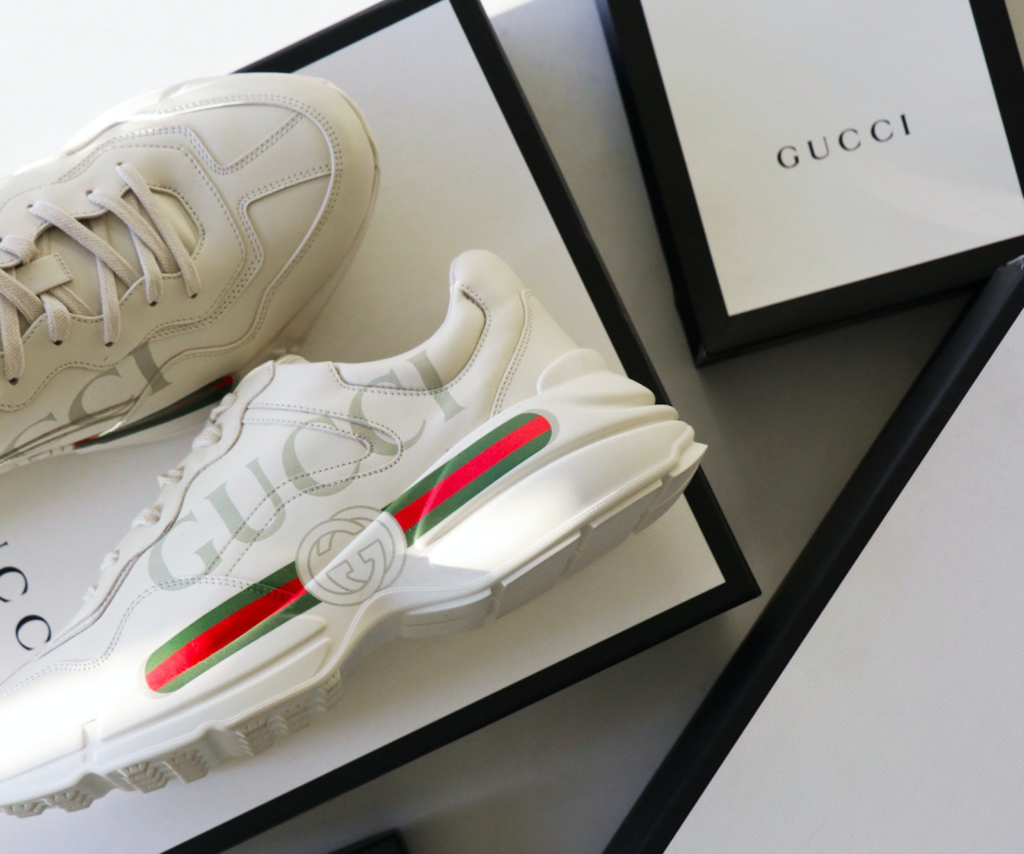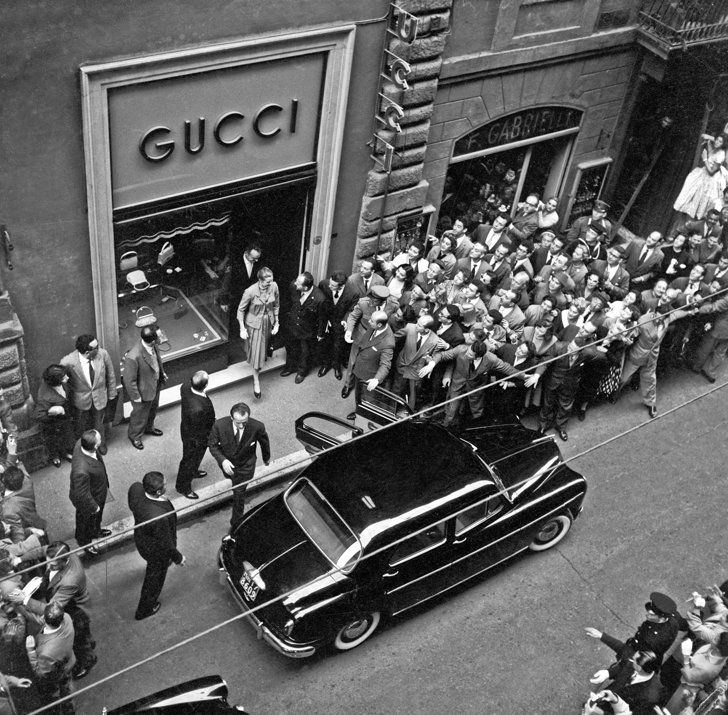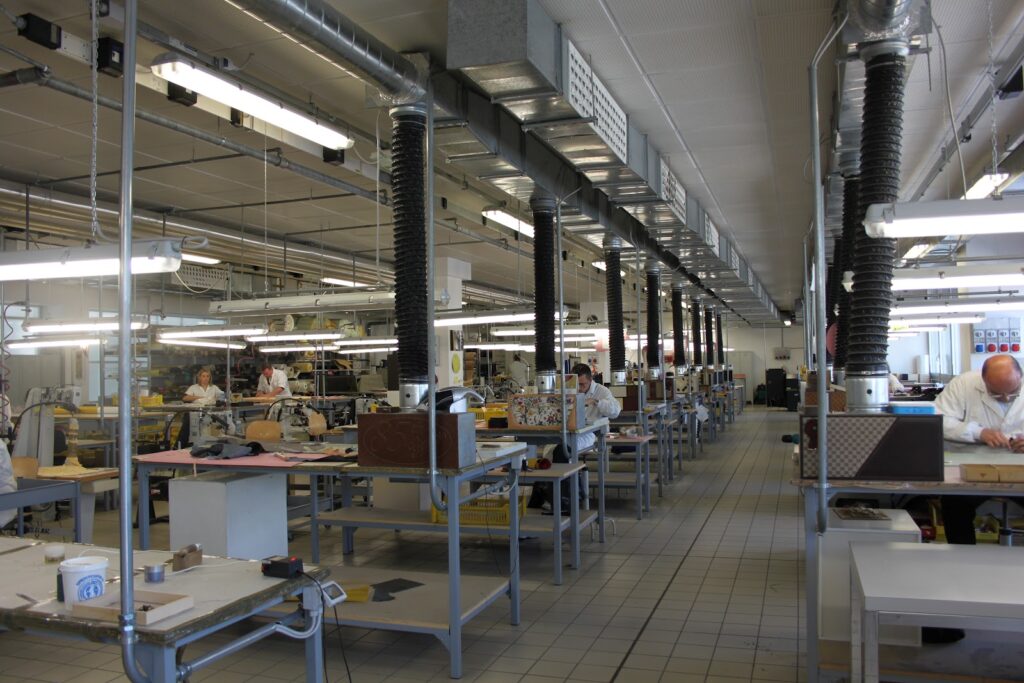
International labor laws focus on ensuring the health, safety, compensation, and wellbeing of the employees, as well as reducing the risks and hazards in the factories where they work. Many fashion brands advertise their dedication to ensuring fair working conditions and complying with labor laws, but not all companies follow through on actually protecting their workers.
This article examines Gucci’s adherence to fair labor practices and workplace safety. Overall, Gucci’s practices showcase their commitment to ensuring fair and safe working conditions in their factories.
Background information: Impacts of the Garment Industry
Table of Contents
Labor Welfare and Workplace Safety
Brand: Gucci
Gucci was founded by Guccio Gucci in 1921 in Florence, Italy. It is one of the oldest fashion brands in Italy that is still thriving today. Gucci offers apparel, watches, shoes, jewelry, perfumes, and home decorations. Today, Gucci has around 500 stores operating internationally.

Source: Popsugar/Pinterest
Gucci manufactures all of its products in Italy, where factories are either owned by Gucci or by their trusted suppliers. Gucci watches, however, are manufactured in factories in Switzerland, and their products are sold in stores all over the world. Gucci’s website states their commitment to monitoring its entire supply chain, from raw material production to factory operations, to ensure that its products are ethically and sustainably manufactured.
Labor Welfare and Workplace Safety
According to Gucci’s code of ethics, the company promotes labor welfare by providing working conditions that meet human rights principles. Gucci is also accredited by SA8000 certification, an international standard that helps ensure ethical practices throughout a company’s supply chain. The SA8000 standard provides policies that:

Source: Ella Cattiff
- Prevent child labor
- Promote and address workers’ voices and concerns
- Strictly prohibit all forms of harassment and discrimination in their workplace
- Ensure appropriate working hours and vacation leave
- Ensure the availability of protective clothing and equipment
Gucci’s sustainability principle requires all their suppliers and sub-suppliers to provide a safe workplace in order to avoid incidents that could harm their employees. Gucci suppliers must provide an assessment that specifies all the risks and hazards in their facilities and must mitigate risks accordingly to ensure workers’ safety.
Gucci’s suppliers and sub-suppliers must ensure the availability of proper protective clothing and equipment to workers. Furthermore, they must provide regular training on safety standards to ensure that workers are always aware of the risks and hazards, safety requirements, and appropriate preventative measures in their workplace.
In 2017, Gucci established Gucci Equilibrium, which aims to strengthen the brand’s sustainability and social responsibility. The same year, Gucci was awarded The Green Carpet Fashion Award for Sustainable Innovation, and continues to prioritize sustainability in their supply chain. Gucci also prioritizes gender equality throughout the company as a whole, with women accounting for 59% of the company’s total senior management positions. In addition to this, Gucci is part of Parks Liberi e Uguali, a non-profit organization that provides strategic programs to promote diversity and equality in the workplace.
The 2021 Fashion Transparency Index gives Gucci an above-average score of 41-50%. The index measures the transparency of the world’s leading fashion brands’ social and environmental actions. Their score shows that Gucci’s stated commitments to ethical and sustainable working conditions are actually being put into practice.
Issues and Controversies
In 2011, an alleged labor abuse was reported in one of Gucci’s stores in Shenzhen, China, where five workers wrote a public letter to Gucci’s top management, notifying them that store employees were being subjected to unethical working conditions. The employees revealed that they were required to follow more than 100 overly-strict rules and regulations, including:
- Asking permission before getting a drink or having snacks
- 5-minute toilet break limit
- Being required to stand for 14 hours each day
- Forced and unpaid overtime
- Being charged a fee for missing or stolen goods
The five employees also argued that the store management conditions were so inhumane that one of their co-workers suffered from a miscarriage.
In reaction to the allegations, Gucci acted to remedy the situation, stating that they do not allow any type of abuse in their workplace. Gucci worked with experts to perform employee wellness reviews in their store in China, and took steps to address the issue such as restructuring management in the store branch to ensure the improvement of employee wellbeing.
In 2014, Gucci was entangled in another scandal when footage inside Gucci factories was broadcasted on television in Italy, showing unethical factory working conditions. According to reports, the hidden-camera footage shows the replacement of full-time Italian factory workers with Chinese part-time workers who were subjected to 14 hours of forced overtime labor, instead of just four hours maximum for part-time workers.
The company denied the allegations, arguing that the footage was biased and inaccurate because it only showed 3 out of 576 companies in their supply chain. However, Gucci also stated that they would increase factory inspections to avoid similar issues in the future.
Read more: American Eagle Factory Working Conditions
